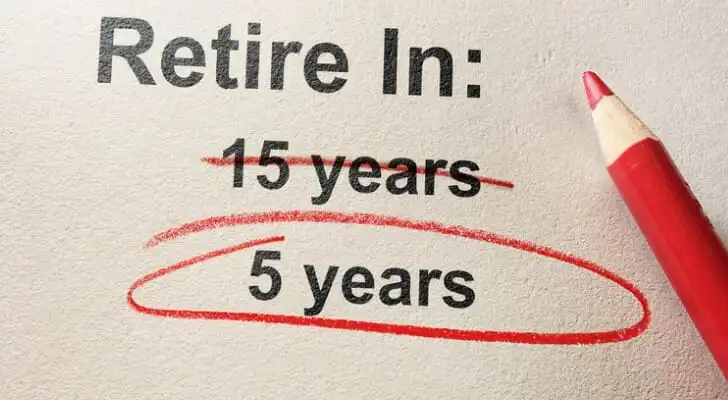Getting the timing right for retirement matters for your financial well-being. While many people relish the idea of starting their retirement ahead of schedule, retiring too early could leave you without enough savings to maintain your lifestyle over the long term. Retiring early can also heavily impact your Social Security benefits. But what constitutes early retirement?
How the Government Defines Early Retirement Age
According to the Social Security Administration (SSA), 67 is the normal retirement age for people born in 1960 or later. This is what’s known as the full retirement age (FRA), as it’s the age when you receive your “full” Social Security benefits. Broadly speaking, early retirement could technically mean retiring at any time prior to your FRA.
“Typically, early retirement is defined by when you can take Social Security,” says Dawn-Marie Joseph, founder of Estate Planning & Preservation in Williamston, Michigan.
Joseph says most workers look at early retirement in this context because it’s how the system traditionally works. You hit full retirement age and apply for benefits. Once you receive approval, those payments continue for life. For many people, Social Security is the linchpin of their retirement plan, and that trend hasn’t changed significantly.
A 2018 survey from the Nationwide Retirement Institute® shows that 26% of pre-retirees say they believe they could comfortably live on Social Security alone in retirement. Overall, more than half of the adults surveyed said Social Security would be their main source of retirement income.
Depending on when you were born, retiring at 66 could be considered “early.” A more strict definition of early retirement would be retiring before age 62, which is the age when you first qualify for (reduced) Social Security benefits.
Another way the government defines early retirement is through Medicare eligibility. Retirees are not eligible for Medicare benefits until they hit age 65. By this definition, anyone retiring before 65 would be considered an early retiree, as they’re leaving the workforce (and any employer-sponsored health coverage) before they’re eligible for government healthcare benefits.
How Retiring Early Affects Your Social Security Benefits

The minimum age to begin receiving Social Security retirement benefits is 62. While that could increase your income stream and lessen your reliance on your retirement savings and investments, there’s a catch.
Taking Social Security benefits at age 62, or at any time prior to what the SSA considers full retirement age, will reduce your benefit amount. Depending on the specifics of your situation, this reduction could be as much as 30%.
This will take a substantial bite out of your monthly income. Assuming a monthly benefit amount of $1,000, the 30% reduction would drop that down to $700. Your spouse’s benefits could get a reduction as well, shrinking your household income even further.
Working in Early Retirement
Retiring early can impact your Social Security benefits if you retire, then go back to work. When you’re working and receiving benefits under the full retirement age, $1 is deducted from your benefit payments for every $2 you earn above the annual income limit. For 2019, the limit is $17,640.
In other words, you could earn up to that amount without any further reduction of your benefits. In the year you reach full retirement age, $1 is deducted for every $3 you earn above the specified limit. For this, the cap is $46,920 for 2019. No further deductions are made once you reach your full retirement age. At that point, you can earn as much as you want without it affecting your benefits.
The good news is that those reductions don’t count against you indefinitely. Once you hit full retirement age, the SSA will recalculate your benefit amount. The SSA will exclude any months where your benefits were reduced or withheld because of what you earned from working.
There’s also something else to know about Social Security. Delaying benefits can work in your favor even if you choose to retire early.
Your benefit amount increases for each year you delay benefits past your FRA. If you can wait until age 70 to begin taking benefits, you’d be eligible to receive 132% of your benefit amount. The challenge, however, may be generating enough income from your savings, investments or work during early retirement so that you can afford to hold off.
Pros and Cons of Retiring Early

One of the chief advantages of an early retirement age is having more freedom to pursue hobbies or other activities that you didn’t have time for during your working years, Joseph says. Additionally, it may be an opportunity to pursue an encore career or start a business. This freedom can be problematic if you don’t have a plan for how you want to spend your time. As a result, some retirees can experience depression and other issues.
Aside from that, the biggest drawback is the possibility of outliving your income. The worst-case scenario would be to have your savings fall short because of an unexpected health issue that requires long-term care.
The Bottom Line
Early retirement age is easily definable through the Social Security lens. Ultimately, though, it’s up to you to decide what it means for you and your family. If you’re weighing the possibility of early retirement, consider what it means financially, mentally and emotionally. If you’re financially prepared, but not mentally ready to quit working, you’ll need to do some fine-tuning to make sure early retirement is an achievable goal.
Tips for Planning an Early Retirement
- Working with a financial advisor is an important part of the puzzle. An advisor can help you determine if you’re saving and investing enough. They can also guide you on investing strategies and how to plan for contingencies like long-term care. Finding a financial advisor doesn’t have to be hard. SmartAsset’s free tool matches you with up to three vetted financial advisors who serve your area, and you can interview your advisor matches at no cost to decide which one is right for you. If you’re ready to find an advisor who can help you achieve your financial goals, get started now.
- Having a firm idea of how much money an early retirement will require is a good starting point for shaping your plan. SmartAsset’s retirement calculator can help you drill down the amount you’ll need to realistically save.
Photo credit: ©iStock.com/zimmytws, ©iStock.com/BackyardProduction, ©iStock.com/oneinchpunch
